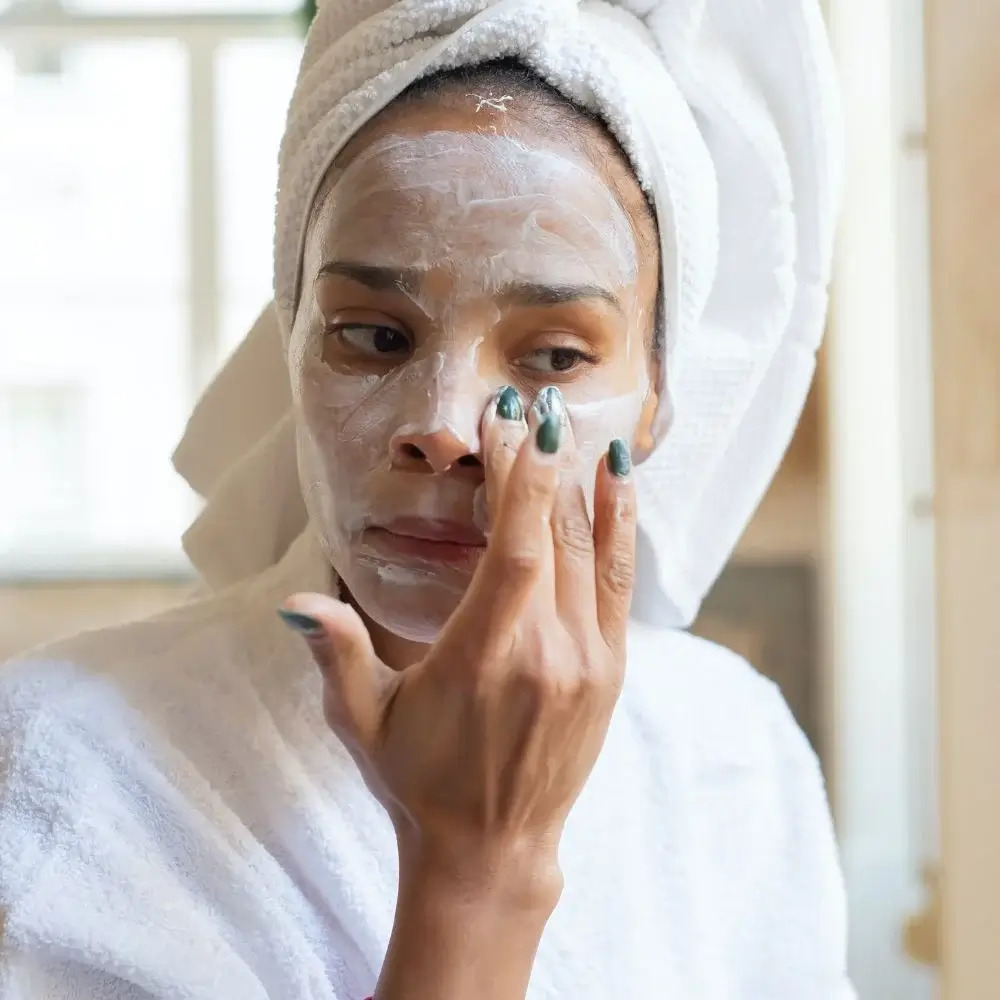Skincare is essential for everyone, especially teenagers experiencing hormonal changes, making their skin prone to acne breakouts or dullness. Regular face wash is not enough to keep the skin healthy and glowing. So, teenagers are often advised to use glycolic face wash to exfoliate the dead skin cells and refresh their skin. However, many parents and teenagers wonder if glycolic acid products are safe for younger skin. In this blog post, we will answer the question: is glycolic face wash safe for teenagers to use? Read on to find out.
Glycolic acid is an alpha-hydroxy acid derived from sugarcane. When used in skincare products, it helps exfoliate the skin, remove dead skin cells, unclog pores, reduce blackheads, and improve skin texture. It is an excellent ingredient for all skin types, including teenagers. However, using glycolic face wash requires some precautions to ensure its safe use.
The first thing for teenagers to note is that they should avoid using glycolic face wash daily. Using it daily can damage the skin's natural moisture barrier, causing redness, irritation, or even breakouts. Experts recommend using it once or twice a week and gradually increasing the frequency if your skin tolerates it well.
Secondly, teenagers should look for glycolic face wash products with lower concentrations. Ideally, a product containing 4% to 8% concentration is sufficient for teenagers' delicate skin. Higher concentrations may irritate, peeling, or burning sensations, especially on sensitive skin.
Thirdly, teenagers should follow the instructions on the product label. Most glycolic face wash products have directions on usage and frequency, so it is essential to observe them. Overusing the product or leaving it longer on the skin than recommended can cause damage to the skin.
Fourthly, teenagers with sensitive skin or a history of allergies should consult a dermatologist before using a glycolic face wash. A dermatologist can determine the skin's sensitivity level and recommend the most suitable glycolic acid product for their skin type.
Lastly, it is crucial to moisturize the skin after using a glycolic face wash. Glycolic acid products can strip the skin of natural oils, leaving it dehydrated. Moisturizing the skin helps restore the moisture barrier, preventing irritations or breakouts.
Teenagers can safely use glycolic face wash if they follow the necessary precautions. It is an excellent ingredient for exfoliating the skin, reducing acne, and improving skin texture. However, ensure you use glycolic face wash in moderation, use lower concentrations, follow the instructions on the product, and moisturize your skin after use. With these tips, you are ensured healthy, glowing skin in no time!
Are you tired of using face washes that leave your skin feeling dull and lifeless? We've done the hard work for you and found the best glycolic face wash out there! With its powerful ingredients and gentle exfoliation, this face wash will leave your skin feeling refreshed and renewed. Say goodbye to dead skin cells and hello to a brighter, smoother complexion. Don't take our word for it; try it yourself and see the difference. Click on the link and discover your new favorite best glycolic face wash today!
What other ingredients should I avoid combining with glycolic face wash?
Avoiding products containing retinol, benzoyl peroxide, or salicylic acid when using a glycolic face wash is best. These ingredients can intensify skin sensitivity and increase the risk of irritation when used with glycolic acid. The combination can lead to excessive dryness, redness, and discomfort. Choose complementary products with soothing and hydrating components such as hyaluronic acid, aloe vera, or chamomile extract to ensure your skincare routine remains harmonious. These ingredients can help balance the potent effects of glycolic acid and minimize the risk of adverse reactions.

What precautions should be taken when using glycolic face wash in the sun?
Sun protection is paramount when incorporating glycolic face wash into your skincare routine. Glycolic acid can heighten your skin's sensitivity to UV rays, making it more susceptible to sunburn and long-term damage. Therefore, applying a broad-spectrum sunscreen with an SPF of at least 30 is essential before sun exposure. Moreover, consider wearing protective clothing, including a wide-brimmed hat and sunglasses, to shield your skin from direct sunlight. If you plan on spending extended periods outdoors, it's wise to reapply sunscreen every two hours for optimal protection.

What is the shelf life of glycolic face wash, and how should it be stored?
Glycolic face washes typically have a shelf life of around 12 to 24 months. Proper storage is crucial to ensure the product remains effective and safe for use. Store the face wash in a cool, dark place, away from direct sunlight and excessive heat. Exposure to sunlight and high temperatures can lead to the degradation of glycolic acid, reducing its efficacy. Besides, ensure the container is tightly sealed to prevent contamination and evaporation, which can alter the product's composition and effectiveness.

How can I maximize the benefits of glycolic face wash for anti-aging?
To maximize the anti-aging benefits of glycolic face wash, consistency is critical. Start using the product 2-3 times a week and gradually increase usage as your skin acclimates. Following each use, apply a high-quality moisturizer suited to your skin type. This step helps lock in the moisture and maintain a healthy skin barrier. Consider incorporating a retinol product into your nightly skincare routine to enhance the anti-aging effects. Retinol is renowned for its ability to stimulate collagen production, reduce the appearance of fine lines and wrinkles, and promote a more youthful complexion.

How can I ensure glycolic face wash does not cause excessive dryness or flakiness?
Preventing excessive dryness or flakiness when using glycolic face wash involves gradually introducing the product to your skincare regimen. Start with a lower frequency, 2-3 times a week, and observe how your skin responds. Always follow your cleansing routine with a moisturizer tailored to your skin's specific needs, as this replenishes lost hydration and helps maintain skin balance. For an extra layer of protection, consider incorporating a hydrating serum into your routine before applying moisturizer. This other step can further aid in retaining moisture, reducing the likelihood of dryness or flakiness, and ensuring your skin stays supple and healthy.
Should I follow specific precautions when using glycolic face wash in different seasons?
Adapting your skincare routine to the changing seasons can help maintain your skin's health and appearance. In colder months, the air tends to be drier, potentially leading to increased skin dryness. To counter this, opt for a richer, more emollient moisturizer to provide hydration and protection against harsh weather conditions. Conversely, lighter, non-comedogenic moisturizers can prevent your skin from feeling excessively greasy during warmer months. In addition to choosing the right products, sun protection is crucial, especially during summer when UV exposure is higher. Consistent sunscreen application, protective clothing, and seeking shade during peak sunlight help safeguard your skin from UV damage and maintain youthful vitality.







